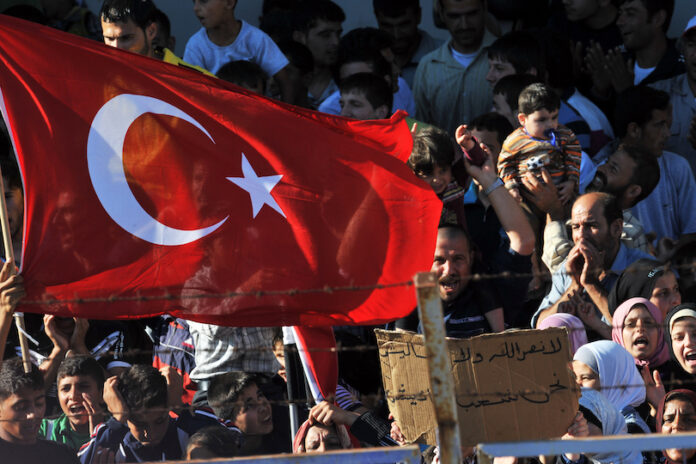Authors: Deniz S. Sert and Didem Danıs
Affiliation: Ozyegin University, Istanbul and Galatasaray University, Istanbul
Organization/Publisher: International Organization for Migration, Switzerland
Date/Place: July 23, 2020/ Grand-Saconnex, Switzerland
Type of Literature: Journal Article
Number of Pages: 18
Link: https://onlinelibrary.wiley.com/doi/full/10.1111/imig.12753
Keywords: Migration, Syrian Crisis, Turkey, EU
Brief:
The Syrian migration towards Turkey started in 2011 soon after the civil war started in Syria. Turkey supported the Syrian masses by providing them shelter under its open-door policy. Unlike Turkey, the European Union (EU) was not as welcoming, but instead declared the migration a ‘crisis’ and launched various initiatives to ‘control’ it within Turkish borders. This article analyzes the difference in the two highly politicized discourses presented by Turkey and the EU regarding Syrian migrants. The methodology of this study depends on critical evaluation of news reports and literature review related to media representations of Syrian refugees. The article also poses some critical questions on the flexibility of the Turkish state and political groups in accommodating the huge influx of refugees as compared to different states in the EU. For example, Hungary accepted only 370 Syrian refugees in 2018 and declared it as a ‘crisis’, but Turkey refrained from using this term while accommodating 3.6 million migrants from its south-eastern border. Of the 250 news articles published in Turkish media, only 26 included the word ‘crisis’ as a description of Syrian migration. Most of these 26 articles were referring to an international audience either by governmental officials or politicians. The article concludes that this rhetoric and discourse has been generated for the larger interest of the state to manage public reaction, i.e. not framing the mass arrival of refugees as a crisis in order to silence domestic audiences. The officials narrated only specific information regarding Syrian migrations when it suited them.
By: Muhammad Taimoor Bin Tanveer, CIGA Senior Research Associate




